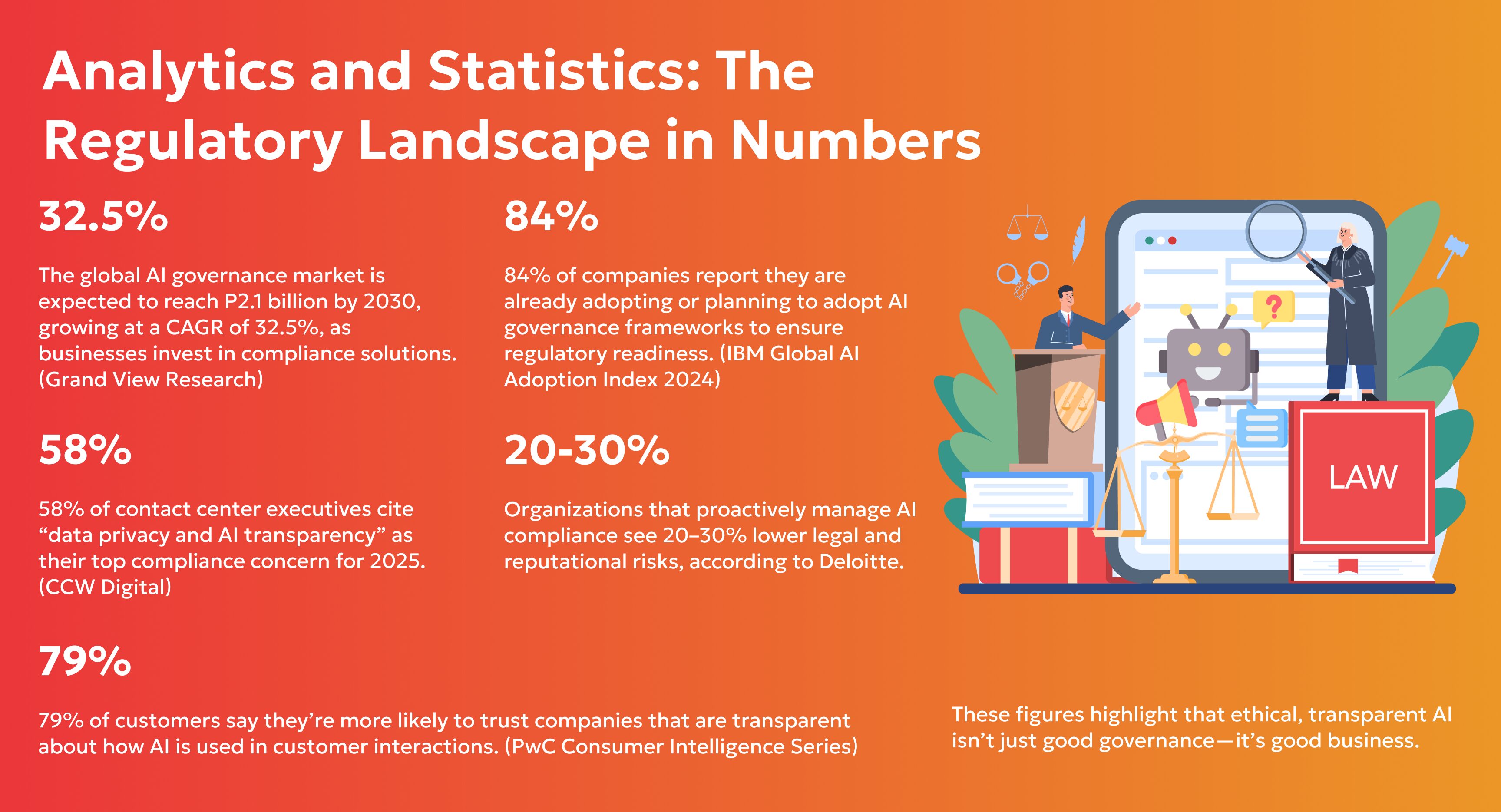Artificial intelligence (AI) has become the backbone of modern contact centers, revolutionizing how companies interact with customers, optimize workflows, and enhance overall experience. From intelligent chatbots and sentiment analysis to predictive analytics, AI is now an inseparable part of customer service operations.
However, as AI continues to evolve, governments worldwide are introducing new regulations to ensure ethical use, data privacy, and transparency. For companies like XMC BPO, which leverage AI to improve efficiency and customer satisfaction, understanding and preparing for these upcoming rules is essential.
The Global Push for AI Regulation
AI regulation is moving from discussion to action. Governments and international bodies are drafting frameworks to govern AI’s use in both public and private sectors.
- European Union (EU): The EU AI Act, passed in 2024, classifies AI applications based on risk and enforces strict compliance requirements. Contact centers using automated decision-making tools must ensure transparency and human oversight.
- United States: The White House Executive Order on Safe, Secure, and Trustworthy AI (2023) directs federal agencies to set AI accountability standards, focusing on fairness, bias mitigation, and consumer protection.
- Asia-Pacific (including the Philippines): Regional governments are exploring AI guidelines to promote innovation while protecting personal data, aligning with the ASEAN AI Governance Framework.
For BPOs and contact centers, these regulations mean one thing: compliance is no longer optional—it’s a competitive necessity.


How XMC BPO Is Preparing for the Future of AI Regulation

Ethical AI Implementation
XMC BPO ensures all AI applications are deployed responsibly, with human oversight and strict adherence to data privacy laws like GDPR and local equivalents.

Data Security and Encryption
Customer data is protected using multi-layered encryption, access control systems, and real-time monitoring to prevent misuse.

AI Transparency and Customer Trust
Clients and end-users are informed when AI tools are in use, ensuring transparency and ethical engagement.

Continuous Compliance Auditing
XMC BPO regularly audits its AI systems to identify and correct potential biases, aligning with global best practices.

Employee Training and AI Literacy
Through upskilling programs, XMC BPO empowers employees to understand AI’s capabilities, limitations, and compliance implications.
Key Benefits of Complying with AI Regulations
Enhanced Customer Trust
Transparent AI practices increase consumer confidence and brand reputation.
Reduced Legal Risks
Compliance minimizes exposure to fines, lawsuits, and reputational harm.
Better Data Governance
Structured compliance improves data quality, security, and usability.
Competitive Advantage
Companies like XMC BPO that comply early are more attractive to global clients.
Operational Efficiency
Ethical AI systems drive efficiency without compromising accountability.
The Cost of Non-Compliance
Failing to align with AI regulations can be costly. Under the EU AI Act, non-compliance penalties can reach €35 million or 7% of global annual turnover, whichever is higher. Even in markets without formal AI laws, reputational damage and customer distrust can have long-term financial repercussions.
Conclusion
As AI transforms customer engagement, regulation is catching up to ensure it’s used responsibly. For contact centers and BPOs, this shift isn’t just about avoiding penalties—it’s about building sustainable trust and demonstrating leadership in responsible innovation.
XMC BPO exemplifies this balance by integrating compliance-ready AI systems that prioritize transparency, fairness, and security—without sacrificing efficiency or customer satisfaction.
The message for 2025 and beyond is clear: AI success in contact centers depends not only on innovation but on integrity.



